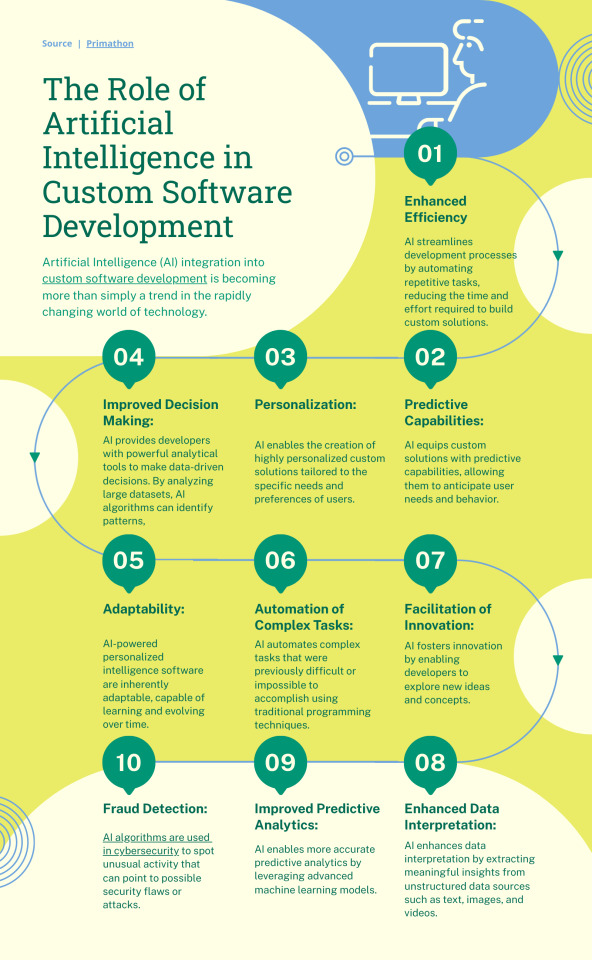#Role of AI
Explore tagged Tumblr posts
Text
http://www.sparkdigital.rf.gd/wp-admin/post.php?post=575&action=edit

1 note
·
View note
Text
The Role of AI in the Future of Digital Marketing
Artificial Intelligence (AI) is transforming industries, and digital marketing is no exception. As businesses strive to connect with increasingly sophisticated consumers, AI offers innovative tools and strategies to enhance marketing efforts. By automating tasks, personalizing experiences, and delivering actionable insights, AI is shaping the future of digital marketing in unprecedented ways. Here’s how:

1. Personalized Customer Experiences
AI enables marketers to deliver hyper-personalized experiences by analyzing user behavior, preferences, and interactions. Tools powered by AI can segment audiences based on detailed data points, allowing brands to craft tailored messages that resonate with individual consumers. For instance:
AI-driven recommendation engines, like those used by Netflix and Amazon, suggest products or content based on user history.
Dynamic email campaigns adjust content in real-time to align with recipient behavior.
Personalization enhances customer satisfaction and loyalty, driving better engagement and conversion rates.
2. Predictive Analytics
AI uses predictive analytics to forecast trends and consumer behavior. By analyzing historical data, AI can:
Identify patterns in customer purchasing habits.
Predict which products or services are likely to succeed in specific markets.
Provide insights for optimizing pricing strategies.
Predictive analytics helps marketers make data-driven decisions, minimizing risks and maximizing ROI.
3. Chatbots and Virtual Assistants
AI-powered chatbots and virtual assistants are revolutionizing customer service. These tools:
Provide 24/7 support, answering customer queries in real-time.
Handle routine tasks, such as booking appointments or processing orders.
Learn and adapt to user interactions, improving over time.
Chatbots not only enhance the customer experience but also free up human resources for more complex tasks.
4. Content Creation and Optimization
AI tools are now capable of creating and optimizing content. While they can’t replace human creativity entirely, they excel at generating specific types of content and making recommendations. Examples include:
Writing product descriptions, social media posts, and basic articles.
Optimizing content for SEO by identifying high-performing keywords and suggesting improvements.
Using AI-driven platforms like ChatGPT to draft ideas or provide content outlines.
This efficiency allows marketers to focus on strategy and creativity.
5. Advanced Audience Targeting
AI enhances audience targeting by analyzing large volumes of data from various sources, including social media, websites, and CRM systems. This enables marketers to:
Identify niche audiences with specific interests and behaviors.
Deliver ads to the right people at the right time.
Reduce ad spend waste by focusing on high-value prospects.
With AI, campaigns become more precise, effective, and cost-efficient.
6. Voice Search and Optimization
As voice assistants like Siri, Alexa, and Google Assistant grow in popularity, optimizing for voice search is crucial. AI helps marketers:
Understand natural language queries and conversational search patterns.
Tailor content to match voice search results.
Develop strategies to capture the growing number of voice-activated searches.
This ensures brands remain visible in a voice-first digital landscape.
7. Enhanced Marketing Automation
AI takes marketing automation to the next level by streamlining processes and improving accuracy. For example:
Automating ad placement and bidding through AI-powered platforms.
Scheduling and managing social media posts using AI-driven tools.
Analyzing campaign performance in real-time to make immediate adjustments.
Automation saves time, reduces errors, and allows marketers to focus on high-level strategy.
8. Improved ROI Measurement
AI enables more accurate tracking and measurement of marketing efforts. Advanced analytics tools provide:
Detailed insights into campaign performance.
Attribution modeling to identify the channels driving the most conversions.
Real-time feedback for optimizing ongoing strategies.
This transparency ensures that marketing budgets are spent effectively.
9. Ethical Considerations and Challenges
While AI brings immense benefits, it also raises ethical considerations, such as:
Privacy concerns over data collection and usage.
Potential biases in AI algorithms affecting targeting and recommendations.
The balance between automation and human creativity.
Marketers must address these challenges responsibly to build trust and maintain ethical standards.
Conclusion
AI is not just a trend—it is the future of digital marketing. By leveraging AI, businesses can create more personalized, efficient, and impactful marketing strategies. However, the key to success lies in balancing technological advancements with ethical considerations and human creativity. As AI continues to evolve, marketers who embrace its potential will gain a significant competitive edge in the digital landscape.
0 notes
Text

The Role of Artificial Intelligence in Custom Software Development
Discover how artificial intelligence is transforming custom software development. On Primathon, explore the benefits, applications, and future trends of AI in creating tailored software solutions.
1 note
·
View note
Text
The Role of AI Automation in the Future of Banking and Financial Services

By the next decade this time, we will be living in a world where your financial decisions are guided by algorithms that learn and adapt in real-time, ensuring personalized service at every touchpoint. This is the promise of AI in banking and finance, where innovation meets necessity in an industry ripe for disruption. Recent studies predict that AI applications could potentially save banks $447 Billion by 2026, primarily through process automation and enhanced operational efficiency. This isn’t just about streamlining tasks; it’s about unleashing the true potential of data to predict customer needs, mitigate risks, and drive strategic growth.
Imagine chatbots that resolve queries instantly, virtual assistants that manage portfolios with precision, and predictive analytics that foresee market trends before they unfold. As we navigate this transformative landscape, the future of banking isn’t just about embracing technology—it’s about harnessing it to foster deeper connections with customers and drive sustainable growth. Join us as we explore how AI in banking is reshaping the industry, propelling us toward a future where innovation and financial services converge seamlessly.
Definition and Scope of AI in Banking
Artificial intelligence in banking refers to the application of advanced algorithms and machine learning techniques to automate and enhance various banking processes. These technologies analyze vast amounts of data to derive insights, make predictions, and optimize operations with minimal human intervention.
AI’s scope in banking extends across multiple functions, from front-end customer interactions to back-office operations. It powers everything from customer service automation to fraud detection and risk management, fundamentally transforming how banks deliver services and interact with their clientele.
Personalized Customer Interactions: Enhancing Engagement through AI
One of the most profound impacts of AI in banking is its ability to deliver highly personalized customer experiences. By analyzing customer data in real-time, AI algorithms can anticipate individual needs and preferences, allowing banks to tailor their services accordingly. For instance, AI can suggest personalized investment options based on a customer’s financial goals and risk tolerance, or offer customized mortgage solutions based on real-time market conditions and personal financial histories.
This level of personalization not only enhances customer satisfaction but also strengthens customer loyalty and retention. According to a report by Epsilon, 80% of consumers are more likely to do business with a company that offers personalized experiences. AI’s transformative impact isn’t confined to banking alone; it’s also reshaping the insurance industry by automating claims processing, enhancing underwriting accuracy, and improving customer engagement through personalized policy recommendations and proactive risk management solutions.
AI and Data Analytics: Enhancing Decision-Making
In the dynamic realm of banking and financial services, the marriage of artificial intelligence (AI) and data analytics is revolutionizing decision-making processes. This section explores how AI processes large volumes of data (Big Data Utilization), enhances risk assessment and fraud detection through predictive analytics, and influences financial markets via algorithmic trading.
Big Data Utilization: How AI Processes Large Volumes of Data
AI’s capability to process and analyze massive datasets—often referred to as Big Data—is reshaping how financial institutions derive insights and make informed decisions. By leveraging machine learning algorithms, AI sifts through intricate financial data in real-time, uncovering patterns, trends, and correlations that human analysts might overlook. This enables banks to optimize lending practices, personalize customer offerings, and mitigate risks more effectively.
Predictive Analytics: Improving Risk Assessment and Fraud Detection
Predictive analytics powered by AI represents a significant leap forward in risk management for financial institutions. AI algorithms can assess historical data and current market conditions to forecast future trends and potential risks with unprecedented accuracy. This proactive approach not only enhances risk assessment models but also strengthens fraud detection capabilities by identifying anomalous patterns indicative of fraudulent activities before they escalate.
For example, banks utilize AI-driven predictive models to detect unusual transaction patterns, flagging potentially fraudulent activities in real-time and minimizing financial losses for both customers and institutions.
Algorithmic Trading: Impact of AI on Financial Markets
AI’s influence extends beyond risk management to actively shaping financial markets through algorithmic trading. AI-driven algorithms execute trades based on predefined parameters, such as market trends, price fluctuations, and economic indicators, at speeds and frequencies far exceeding human capabilities. This automation enhances market liquidity, reduces trading costs, and optimizes investment strategies for institutions and individual investors alike. High-frequency trading (HFT), a subset of algorithmic trading facilitated by AI, exemplifies this transformation by executing thousands of trades per second, responding swiftly to market changes and arbitrage opportunities.
AI and data analytics are not merely enhancing decision-making in banking and financial services; they are revolutionizing it. By harnessing the power of AI to process Big Data, refine predictive analytics, and drive algorithmic trading, financial institutions are poised to navigate complexities with agility and precision, paving the way for a more efficient, resilient, and responsive financial ecosystem. As AI technologies continue to evolve, their impact on decision-making processes is set to deepen, ushering in a new era of innovation and opportunity in the global financial landscape.
Challenges and Considerations in AI Adoption in Banking
As artificial intelligence (AI) continues to redefine banking operations, it brings forth a host of challenges and considerations that institutions must navigate to harness its full potential responsibly.
Ethical Concerns: AI Bias and Privacy Issues- AI in banking introduces ethical challenges, such as biases in decision-making and concerns over data privacy. Ensuring transparency, fairness, and accountability in AI algorithms is crucial to building trust with customers and mitigating risks.
Workforce Implications: Impact on Jobs in Banking- While AI enhances efficiency and decision-making, it also raises concerns about job displacement. Banks should invest in reskilling programs to empower employees for new roles requiring advanced technological skills, thereby turning AI into an opportunity for innovation rather than a threat.
Security Risks: Addressing Cybersecurity Challenges- AI adoption in banking requires robust cybersecurity measures to protect sensitive data from threats like data breaches and malicious attacks. Implementing encryption, AI-powered threat detection, and compliance with data protection regulations are essential for safeguarding customer information and mitigating legal risks.
The Future Outlook: Shaping Tomorrow’s Banking Landscape
As we look ahead, the future of banking is set to be defined by transformative trends at the intersection of technology and finance. Looking forward, embracing these trends will not only drive competitive advantage but also pave the way for a more inclusive, resilient, and customer-centric banking ecosystem. By leveraging AI, blockchain, and navigating regulatory landscapes effectively, financial institutions can position themselves at the forefront of innovation in the digital era.
AI Applications in Fintech Startups: Fintech startups are at the forefront of integrating AI to revolutionize financial services. From automated investment advisors to AI-driven lending platforms, these innovations are reshaping customer experiences and operational efficiencies across the industry.
Integration with Blockchain: Blockchain technology promises secure and transparent transactions, making it a natural fit for enhancing banking operations. As banks explore blockchain’s potential for decentralized finance (DeFi) and digital currencies, collaborations between AI and blockchain could unlock new levels of efficiency and trust in financial transactions.
Adapting to Regulatory Changes: Amidst rapid technological advancements, regulatory frameworks must evolve to ensure consumer protection and system stability. Adapting to changes in data privacy laws, cybersecurity standards, and fintech regulations will be pivotal in fostering innovation while maintaining regulatory compliance.
The future of banking and financial services is poised for unparalleled transformation, driven by the integration of artificial intelligence (AI) and automation. As AI continues to permeate every facet of banking operations—from customer interactions to data analytics and risk management—it heralds a new era of efficiency, innovation, and personalized service.
AI in banking isn’t just about leveraging technology; it’s about reimagining how financial institutions operate and deliver value to customers. By harnessing AI’s predictive capabilities, banks can anticipate customer needs, optimize decision-making processes, and mitigate risks with unprecedented accuracy.
Looking ahead, the synergy between AI and banking holds immense promise. Fintech startups are pioneering AI applications that redefine financial services, while the integration of blockchain technology offers new possibilities for secure and transparent transactions. However, navigating ethical considerations, addressing workforce implications, and fortifying cybersecurity measures remain critical challenges on this transformative journey.
As the regulatory landscape evolves, financial institutions must adapt to ensure compliance while fostering innovation. Embracing AI’s potential to enhance operational efficiency and customer experiences will be crucial in staying ahead in a competitive market.
AI’s role in banking and financial services isn’t merely about automation; it’s about shaping a future where technology empowers institutions to meet evolving customer expectations and navigate complex global challenges. By embracing AI in banking, we embark on a journey toward a more connected, efficient, and resilient financial ecosystem, poised to unlock new opportunities and drive sustainable growth in the digital age.
Check out the Original Article
0 notes
Text




It’s been hard to motivate myself to do art for a long time, so I’ve been going back to basics which is binging dozens of hours of content and drawing traditionally in a frenzy.
Anyway, here’s Caleb, I really missed him ✨
#critical role#caleb widogast#traditional art#the arrival of ai art has been a huge knock on my motivation#on top of work and life of course#so drawing traditionally has been a nice way of taking back the joy#an ai might be able to scrape this drawing and turn it to mush but at least this picture is real#the texture and sheen of pigment on paper that was given to by my late grandpa#it’s just a silly fanart of my blorbo but#anything to get me drawing again#anyway I’m not dead I’ve just been Working (derogatory)#anyway have a nice day I hope I’ll post here soon again
2K notes
·
View notes
Text
Role of AI in Digital Marketing: Enhancing Campaigns with Artificial Intelligence

Discover the Role of AI in Digital Marketing & SEO. Unlock growth with our AI-powered services for web development, SEO, and digital marketing. Learn more at runtime-solutions.com.
Read more: https://www.runtime-solutions.com/role-of-ai-in-digital-marketing-enhancing-campaigns-with-artificial-intelligence/
0 notes
Text

























heyyyy *leans on old halo art i never posted*
#my art#fanart#digital art#sketch#halo game#halo fanart#master chief#cortana#thel vadam#fernando esparza#echo-216#sangheili#orbital drop shock trooper#jameson locke#edward buck#kelly-087#frederic-104#linda-058#the weapon halo#theres a role reversal au where cortana is the spartan and chief is the ai. left out the art where i drew him with cortana's markings#another au where a destiny ghost revives sam. not sure where i was gonna go with that one tbh; but it was some good value practice#and that fantasy au i got frustrated on. i couldnt decide about the armor and other things but it was very fun overall#maybe i'll revisit it someday and hash the details out#and some sangheili practice which i still dont understand their anatomy (。_。)#ok i think thats it. heres to more halo art this year 💪
568 notes
·
View notes
Text

#fashion#trendy#traditional gender roles#housework#artists on tumblr#apron#housewife#digital art#sahmomlife#ai girl#traditional art#traditional lifestyle#traditional marriage#traditional wife#tradwife#traditional femininity#traditional family#traditional fashion#donald trump
511 notes
·
View notes
Text
emperor gojo satoru who falls in love with you, a mere commoner with no status… he marries you and makes you his empress. those who have opposed and caused dispute in regards of this marriage, be it even family, have all been publicly beheaded. and those who keep looking down on you and refuse to serve you are personally warned by the emperor himself. looking down on you means looking down on him for you are the only being he bows down to. he doesn’t shy away from sharing that every night he kneels in front of you to wash your feet as long as the other side gets the message that you stand on a higher level than the emperor himself
#— ai rambles#ik this is cliché but i am a sucker for this trope and satoru is so perfect to be in this role#bc he’s made to worship you through and through#[ ♡ ] — satoru
386 notes
·
View notes
Text

Kiki was the first Vox Machina fanart I made and I love her very much 💚🐾
#vox machina fanart#vox machina#keyleth#kiki#vox machina keyleth#critical role#druid#dnd#the legend of vox machina#fanart#digital artist#my art#keyleth of the air ashari#no ai used#no AI
85 notes
·
View notes
Text

If Travis becomes a bodybuilder
#travis willingham#bodybuilder#muscle daddy#gay men#ai generated#gay art#deep fake#gay muscular#muscle#mascular#masculine#bodybuilding#ai#trunks#critical role
116 notes
·
View notes
Text
The Role of Artificial Intelligence in Healthcare: Transforming Patient Care

Imagine a world where a diagnosis takes seconds, treatment plans are personalized to the finest detail, and patient monitoring is continuous and seamless. This is not a futuristic dream but a burgeoning reality in today’s healthcare landscape. According to recent studies, the global AI in the healthcare market is expected to reach $45.2 billion by 2026, growing at a staggering annual rate of 44.9%. This rapid growth is a testament to the transformative power of AI automation in patient care.
AI is not just a buzzword; it is a catalyst for change, reshaping how we approach patient care. From enhancing diagnostic accuracy to personalizing treatment plans, AI automation is at the forefront of a healthcare revolution. In this blog, we’ll explore how AI is revolutionizing patient care, the benefits it brings, the challenges we face, and what the future holds for this exciting intersection of technology and medicine.
Definition of AI Automation
AI refers to the simulation of human intelligence in machines that are programmed to think and learn. In the context of healthcare, AI automation involves using these intelligent systems to perform tasks that typically require human intervention. These tasks range from data analysis and diagnostics to treatment recommendations and patient monitoring. AI in healthcare leverages machine learning, natural language processing, and robotics to enhance efficiency, accuracy, and personalized care.
Historical Context
The journey of AI in healthcare began decades ago, with early applications focusing on decision-support systems and diagnostic tools. In the 1970s and 1980s, pioneering systems like MYCIN and INTERNIST-I demonstrated the potential of artificial intelligence in medicine by assisting doctors in diagnosing infectious diseases and complex medical conditions. However, limitations in computational power and data availability hindered significant progress. It wasn’t until the advent of big data and advanced machine learning algorithms in the 21st century that the role of artificial intelligence in healthcare began to flourish.
Benefits of AI Automation in Patient Care
Improved Diagnostics
One of the most significant benefits of AI in healthcare is its ability to enhance diagnostic accuracy and speed. AI-powered imaging and diagnostic tools leverage machine learning algorithms to analyze medical images and detect abnormalities with remarkable precision. For example, AI systems can identify early signs of diseases like cancer, fractures, and neurological disorders faster than traditional methods. This improves patient outcomes and reduces the time and resources spent on diagnostic processes.
Personalized Treatment Plans
AI in patient care extends beyond diagnostics to creating personalized treatment plans. AI can develop tailored treatment strategies that optimize efficacy and minimize adverse effects by analyzing a patient’s medical history, genetic information, and lifestyle factors. This level of personalization was previously unattainable with conventional methods.
Operational Efficiency
AI automation significantly streamlines administrative tasks, reducing healthcare costs and improving operational efficiency. From scheduling and billing to managing patient records, AI systems handle routine tasks with minimal human intervention, freeing healthcare professionals to focus more on patient care.
AI Automation in Clinical Settings
AI in Surgery
The role of artificial intelligence in healthcare extends significantly into the surgical domain. Robotic surgery and AI-assisted procedures have revolutionized the operating room, offering unprecedented precision and control. Surgeons now rely on AI to perform complex surgeries with enhanced accuracy, reducing the risk of complications and improving patient outcomes.
Example: One prominent AI surgical system is the da Vinci Surgical System, which allows surgeons to perform minimally invasive procedures with robotic arms controlled by a computer. Another example is the Mazor X Stealth Edition, which combines AI and robotics for spinal surgeries, offering precise guidance and planning.
Patient Monitoring
Continuous patient monitoring and real-time data analysis are critical aspects of AI in patient care. AI technologies enable healthcare providers to monitor patients’ vital signs and health metrics around the clock, allowing for early detection of potential issues and timely interventions.
Technologies: Wearable devices such as smartwatches and fitness trackers equipped with AI can monitor heart rate, blood pressure, and other vital signs. Remote monitoring systems like BioIntelliSense’s BioSticker provide continuous, real-time health data, which is analyzed by AI to detect anomalies and alert healthcare professionals if intervention is needed. These advancements highlight the benefits of AI in healthcare, particularly in enhancing patient safety and care quality.
Telemedicine and Virtual Care
AI-driven telehealth platforms are expanding access to care, making healthcare services more accessible to remote and underserved populations. Telemedicine allows patients to consult with healthcare providers virtually, reducing the need for in-person visits and enabling timely medical advice and treatment.
Impact: The role of artificial intelligence in healthcare through telemedicine is profound, as it bridges the gap between patients and providers regardless of geographical barriers. For instance, AI-powered chatbots and virtual assistants can conduct preliminary assessments, schedule appointments, and provide medical information, ensuring patients receive the care they need promptly. This increased accessibility is particularly beneficial for those living in rural or underserved areas, ensuring that more people can benefit from high-quality healthcare services.
Challenges and Ethical Considerations
Data Privacy and Security: One of the primary concerns with AI in healthcare is ensuring patient data privacy and security. With vast amounts of sensitive information being processed, robust measures must be in place to protect against data breaches and unauthorized access. Ensuring the confidentiality and integrity of patient data is paramount to maintaining trust and compliance with regulations.
Bias and Fairness: AI algorithms can inadvertently perpetuate biases present in the data they are trained on, leading to unfair treatment outcomes. Addressing these biases is essential to ensure equitable healthcare for all patients.
Integration with Human Care: Balancing AI automation with the human touch in patient care is crucial. While AI can enhance efficiency and accuracy, the empathetic and compassionate aspects of human care are irreplaceable.
Artificial intelligence in healthcare is not just a technological advancement; it is a catalyst for transformative change. From improving diagnostic accuracy and personalizing treatment plans to enhancing operational efficiency and expanding access through telemedicine, the benefits of AI in patient care are profound and far-reaching. However, as we embrace this revolution, it is crucial to address the challenges and ethical considerations that come with it. Ensuring data privacy and security, mitigating biases, and maintaining the essential human touch in healthcare is paramount to realizing the full potential of AI.
The future of AI in healthcare is promising, with continuous advancements paving the way for even more innovative solutions. By navigating the complexities and balancing the integration of AI with human expertise, we can create a healthcare system that is more efficient, equitable, and patient-centred. As we move forward, the role of artificial intelligence in medicine will undoubtedly continue to evolve, driving us toward a future where high-quality healthcare is accessible to all. Embracing AI responsibly will enable us to unlock its full potential, ultimately transforming patient care for the better.
Check out the Original Article
0 notes
Text
MERCS AND THEIR GUILTY PLEASURES
scout: scout spends... a lot of time staring at himself in any reflective surface he can find. he's checking himself out in every mirror. checking his teeth in the reflection of tinted windows. giving himself a smile, a suave face, tries a goofy face, gets embarrassed and stops. he also definitely watches cartoons with pyro but he doesn't feel bad about that at all. it's the only time he feels like he's not going to get made fun of for watching a cartoon or two.
soldier: soldier actually... really enjoys mingling and fraternizing with the enemy team. he is genuinely having a good time on the field, this to him is just a part of his day to day living. he holds no ill will towards anyone if the clock hasn't started, and frankly, he rarely gets genuinely upset on the field. and he misses his counterpart, okay, he's never met a man who's just like him. it disheartens him slightly when they don't even spare him a hello during off times. he doesn't really see why this should be an issue. they kill each other every day, and nobody has permanently died. when that happens, maybe then they can talk about grudges.
pyro: there is no such thing as a guilty pleasure with pyro. look them in their sockets and shame them for their interests, or hobbies. they'll wait for you to muster the courage while they put eyeshadow on their gas mask. pyro will do whatever they want, whenever they want, and they don't mind making a fool of themselves alone. but if there's one thing that they only indulge in occasionally... they like to go for a swim every once in a while. there's not a lot of water around the base, and what water there is is moreso wading depth than actual swimming depth, sometimes they just want to feel a wave crash into them and threaten to take them underwater. but they don't really like the ocean, either.
demo: demo also... really enjoys fraternizing with the enemy team. granted, demo understands a little more why it is frowned upon for them to be fraternizing when they are currently paid to kill each other, so he does feel more guilt than soldier does when he interacts with them. he is, however, more willing to lay his weapons down and refuse to battle. it's his own form of sacrifice. sometimes, he wants a break. sometimes, he just wants to talk. and if the blu team will rarely give him the time of day (except you, jane doe, he loves you dearly and would not sacrifice you, or your counterpart for the world on a platter); he will force them to. between him and soldier, they can usually get their way. it's hard to deny the power classes.
heavy: heavy does not have a guilty pleasure. look him in his eyes and shame him for his interests. he will wait for you to gather the strength to do so. however, what he does have is a people-watching habit and a staring problem. and it's not even that it makes him feel awkward or embarrassed as much as it rubs his teammates, and his enemies the wrong way. he will stare you down as he passes you in the hall. he stares into the distance and his teammates stop as they cross his sight. he watches the life drain from the enemy team's eyes. and he rarely looks any more than marginally present in the situation at hand. sometimes slight satisfaction at the blood on his hands. it's the last thing they see.
engineer: engie watches soap operas. and you can make fun of him for it, or you can sit down and he’ll tell you about how george is currently supposed to be on a date with lizzie but he actually shirked her off to go with eileen to the same restaurant and now he has to avoid lizzie while also trying to act as normal as possible so he doesn’t fuck it up with eileen. but, and here’s the spoiler for the season finale, he actually doesn’t get to be with either of them; they’re both lady lovers and lizzie was giving george the last shot for men before she decided she actually wasn’t even attracted to them at all, and eileen was enraptured by lizzie, and they get together at the end, and george is back at square one for the new season, and they try to make him seem sympathetic but really george is just a fucking asshole. he allotted himself about four hours a week to keep up with his soaps.
medic: any bed will sing a siren song that the doctor is rarely able to resist. this man naps like he’s not allowed to sleep. in two hour long increments maximum. and he is a turbulent riser. so don’t wake him up, because you’ll cause him to panic. even the gentlest attempts to wake him are met with him shooting up with a screech. “IM AWAKE!” it’s not even the bed as much as it is this man hates doing paperwork and will do anything else but the paperwork he is (ALLEGEDLY) getting paid to do. and sure, he “feels bad” that he avoids paperwork so much, but he doesn’t feel anything when he’s asleep. and when he wakes up, half the time he’s “forgot” that there was paperwork he needed to do until pauling is calling him multiple times a day for it. then he has to acquiesce and get it done before the day’s end. but usually, he will go find something else to do. avoiding the papers dirtying his desk is his guilty pleasure until he has to do it. but finishing it all boosts his ego. even gods have paperwork to do, sometimes.
sniper: if snipes thinks he can get away with it… he volunteers at the animal shelter. he knows why the caged bird sings. he likes getting to walk the dogs, doesn’t mind cleaning up behind the cats. has enough knowledge of wildlife that he’s truly a godsend to the shelter for small woodland critters. beloved by the staff. he’s no professional at it by any means, but he’s got a pair of clippers. he’ll shave down a matted case if he’s able to. sometimes it’s too much and the dog needs a professional. sometimes, people will recognize him from the shelter and he has to stretch the truth a little and say he’s got a twin. but when he goes back he forgets that he lied. sometimes they call him if he hasn’t been to the shelter in a while. just to make sure he’s okay. once, he did bring his counterpart with him. just to solidify that half truth a bit. now the shelter staff can tell exactly which mick they’re interacting with at any time. find the fact they have the same name odd. maybe it’s an australian thing.
spy: spy is so… nosy. giving him an ability to cloak and disappear was the absolute worst thing mann co could’ve ever done, because now he thinks he has free reign to creep on any and every one who he thinks won’t notice he’s there. he’s gotten quite good at dancing around people to keep his cloak up, and he becomes the ultimate fly on the wall. there has been multiple times he’s outed this little habit of his to the team, when he knows too much about situations he was never present for. but he was present! it’s just that nobody bumped into him to give him away. surprising to him, it doesn’t seem like the team actually cares about whether or not he’s spying on them (ha). as long as he doesn’t say anything about the things they know are occurring in their bedrooms, then they find it a very real possibility that they just never registered spy was even in the room. it’s not like the man announces himself to every room he enters. and frankly, they appreciate the neutral, “this-is-what-happened-exactly” view. and spy loves a juicy bit of gossip. he has inadvertently become a communication hub for the team of keeping everyone updated in a more… lowkey manner than getting together and having crying sessions. some of the mercs are easier to eavesdrop in on than others. and spy does have his favorites.
#team fortress 2#team fortress two#tf2 medic#tf2 heavy#tf2 sniper#tf2 engineer#tf2 pyro#tf2 scout#tf2 spy#tf2 soldier#tf2 demo#tf2 demoman#does anyone roleplay anymore or are all the role players ai chatbots now
99 notes
·
View notes
Text







disgusting
Part 1
#ace attorney#phantom#my art#ace attorney spoilers#phantomquill#phantom aa#simon blackquill#bobby fulbright#but anyway#my fucking MAGNUM OPUS#I SPEND A WEEK WORKING ON IT#he is fucking disgusting i love them#please listen to Toki ni Ai wa while reading#its like main inspiration#HAS NO BEARING TO THE COMIC LOL#dual destinies#its gonna have additional meme ending so look forward to it#yes in my mind Phantom is a cis dude but his self identity is so fucked#that he just does not care anymore#he prefers to play a male roles#but if simon would tolerate him more as a woman whatever#yeah he does not stride to make Simon love him#it would be delusional#hes aiming for low level tolerance#people cant love monsters#and love is overrated anyway#yeah simon is gay#its the big misunderstanding#my guy hes not interested in women#disgusting the comic
489 notes
·
View notes
Text

Sweet reward for obeying commands
#THIS PIECE WAS SPONSORED BY THE HOURS OF RESEARCH I DID ON HUMAN HORMONE AND THEIR EFFECTS AND THE 0 REFERENCES I USED FOR THE SERVER TOWERS#ghosts art#SAYER#SAYER podcast#SAYER ai#jacob hale#sayerhale#well kids. lets analyze this piece. what did the author (me) mean by this?#anyways uh this is. something ive drawn. and made. and posted.#if you are thinking to yourself ''this looks intimate'' then yes. you are right.#i also feel like i owe a hand written apology letter to everyone who works in IT. i am NOT a technology nerd. but i AM a human antomy nerd.#anyways!!! role swap!!!!! its now Hale prodding around SAYER's ''brain'' instead of the opposite :)#the filename for this is SAYER_sayerhale objectum nonsense . just a fun silly fact for everyone#because i am aroace towards humans. but i am also very much objectum#i dont know if ill have the balls to post this in the official server . but enjoy#objectum#<- dont worry about it#ALSO PLEASEEEEEE ZOOM IN ON THE DETAILS. IM BEGGING YOU.#MY ASS DID NOT SPEND HOURS DOING ALL THAT RESEARCH FOR NOTHING!!!!#''what exactly are hale's biometric readings telling us about'' decide that for yourself . up for interpretation.
147 notes
·
View notes
